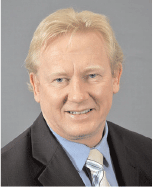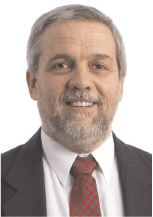The role of water management in unlocking unconventional resources
Gary Crisp A , John Walsh A , Mark Shaw A and Chris Hertle AGHD.
The APPEA Journal 54(2) 481-481 https://doi.org/10.1071/AJ13054
Published: 2014
Abstract
Water management for unconventional resources is a complex, multidisciplinary subject that cannot be overlooked. Traditional oilfield development strategies view water as an afterthought that must be dealt with once the field matures and water cut begins to escalate. When this strategy is employed for shale gas developments, water usage is higher than necessary, trucking costs become high, and site remediation becomes time consuming and costly. For shale gas developments, the high-volume and high-quality requirements of water during the lifecycle of field development are a game changer. Water management for unconventional resources requires logistics planning, engagement of field services providers, and technology selection. Each of these issues need to be addressed in the early planning stages and must be tailored for the location and water types involved.
This extended abstract takes a holistic view of water management for unconventional resource development across Australia. Management strategies are compared and contrasted for the different unconventional resource types, across different locations, considering all of the factors mentioned above, together with an understanding of regulatory differences, water source options, disposal options, and the different types of water involved. These factors are compared (in the context of North American developments) for CSG in Queensland, tight gas, and unconventional shale gas developments in the Cooper Basin and WA. As these different resources are developed, it is important to understand why the water management strategies are, and must be, different (as discussed in this extended abstract).

Gary Crisp is a Civil Engineer and has 34 years of water experience. In the USA, he has been involved with a range of desalination projects, including BP Mad Dog II, Carlsbad, Camp Pendleton, and Huntington Beach. Gary is a member of GHD’s team, involved in produced water treatment, conventional and unconventional hydraulic fracturing, sulphate removal, water flood and enhanced oil recovery (EOR) applications. He is a member of the Society of Petroleum Engineers (SPE). Gary, as a director of the International Desalination Association along with other dedicated directors has been encouraging the desalination, and for oil and gas industries to work closer. Gary attended the world’s first coming together of the two industries in Rome, in March 2012 at the SPE/EDS Joint Workshop on Desalination in the Oil and Gas Industry. He has presented at the American Water Intelligence, WestWater Research and Produced Water Society: Water and Energy Conference in Houston in 2012 and the IDA Water Recycling and Desalination for the Oil and Gas Industry in Banff (2013). Based in Perth, Gary was voted as Western Australian Professional Engineer of the Year 2007 – Engineers Australia for his contribution to desalination in Australia. |

John Walsh joined GHD from Shell, where he was the global subject matter expert in the area of upstream water treating. He has more than 20 years’ experience in the E&P industry, having worked in Shell’s Technical Centres for half his career and in operating assets for the other half. John designed water-treating systems, and provided troubleshooting support to assets all over the world. He has experience in nearly all areas of water treating for the oil and gas industry, including conventional produced water treating systems, and water treating for water flood, polymer flood, steam flood, sour hydrocarbons, and unconventional hydrocarbons. John specialises in the areas of:
Having earned a PhD in chemical engineering, together with extensive experience in operating units, John brings a unique combination of fundamental knowledge with first-hand practical experience. John has recently taken up an appointment as Technical Director for water treating at Cetco Energy Services in Houston. |

Mark Shaw is a Chartered Mechanical Engineer with over 30 years’ multi-disciplinary project engineering, project management and project development experience, working in the UK, Middle East, South East Asia, New Zealand, and Australia. Mark started his engineering career designing aviation fuel transfer infrastructure, and progressed into the design and project management of water treatment systems. Most recently he was GHD’s Design Manager for the West Australian Water Corporation’s first Public Private Partnership, the Mundaring Water Treatment Plant and project director for a number of industrial hydrocarbon/oily waste water separation projects. Mark is presently GHD’s Service Group Manager for Water Technology and is based in Perth, Western Australia. |

Chris Hertle is GHD’s Global Market Leader - Water. A chemical engineer with more than 26 years’ experience, Chris aims to develop and strengthen client and stakeholder relationships within the global water industry. Enhancing GHD’s offering in the industrial water and waste management areas are his key focus points, along with leveraging GHD’s global network to share water insight from around the world. Having joined GHD more than 20 years ago, Chris has played a key role in helping roll out GHD’s Innovation program in 2008. Chris aims to deliver innovative, sustainable solutions to clients and leverage these outcomes to grow the firm. He has been involved in numerous municipal and industrial water projects, involving advanced treatment for energy recovery and water recycling. Chris was involved in the introduction of membrane bioreactors into Australia and has been involved with the coal seam gas industry water management. He has particular interest in the cost effective recovery of commodity chemicals from CSG associated water. Chris has presented many papers at national and international forums, including topics on associated water management for the CSG industry. |
References
Halldorson, B., 2013—Successful Oilfield Water Management. American Association of Drilling Engineers, AADE-13-FTCE-14.Slutz, J., Anderson, R., Broderick, P., and Horner, P., 2012—Key Shale Gas Water Management Strategies: An Economic Assessment Tool. Society of Petroleum Engineers, International Conference on Health, Safety and Environment in Oil and Gas Exploration and Production, 11–1. September, Perth, Australia.


